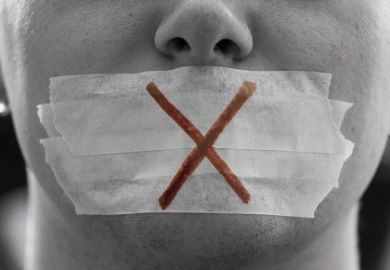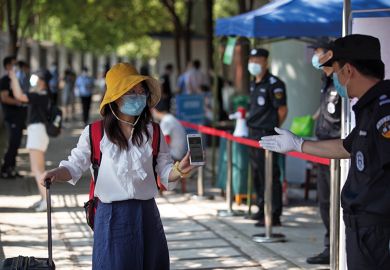Universities must do more to protect their academics from harassment, according to a microbiologist who successfully sued her institution over abuse received during the pandemic, warning she feared lessons had still not been learned.
Siouxsie Wiles, an associate professor at the University of Auckland known for her expert commentary on coronavirus, said she hoped her court victory would set a precedent for other scholars in the public eye.
After she appeared in the media to discuss the pandemic, Dr Wiles began to receive death threats and was subject to ongoing harassment from conspiracy theorists and those opposed to government policies.
She accused the university of failing to support her in the face of this intimidation – a charge that New Zealand’s employment courts upheld after a lengthy legal battle.
“I was fighting…with the people who were supposed to be on my side,” Dr Wiles told Times Higher Education. “So with this judgment, I feel really vindicated.”
Of particular significance was the judge’s ruling that academic staff “are key to universities discharging the role of critic and conscience and do it in a variety of ways, including through…engaging in public debates”.
“That meant that the university had health and safety obligations towards me,” Dr Wiles said. “I think that’s a really important point because the university spent a long time…[arguing that] Covid commentary was not part of my job.
“Providing expert commentary, helping people to understand evidence – this is part of our jobs as academics, and it’s something I’ve always felt.”
Dr Wiles said she hoped that the ruling would encourage more universities to actively develop policies to protect staff from online and in-person harassment, which was continuing to evolve as threats developed and changed.
“No single institution should be trying to battle this on their own,” she said, adding that New Zealand needed a scheme similar to the Netherlands’ SafeScience initiative, which allows scientists to access support if they are faced with threats, intimidation or hate speech.
Auckland argued in court that it had already made a series of changes to strengthen its protection for staff who work in sensitive areas after consulting with academics and experts.
However, Dr Wiles said the university, where she still works, could do more, adding that she was concerned “that maybe they might not think they have lessons to learn”.
Aside from an all-staff email about the case, Dr Wiles said she had not been contacted by anyone from senior management to discuss its outcome, and she alleged that she and other at-risk staff members had since received further threats that the university’s monitoring processes had been slow to pick up.
With a second Covid inquiry on the way in New Zealand under the country’s new government, Dr Wiles was worried that the situation could yet get worse.
“It’s happening to more and more academics, so our policies need to be fit for purpose,” she said.
And while Dr Wiles will receive a NZ$20,000 (£9,567) payout from the university, she was likely to be left out of pocket by the action, she said, revealing that she had had to remortgage her house to afford to take the university to court and that her lawyer had “massively discounted her fee”.
“That’s one of the things that kept me going because I thought, if I can afford to do this, then I owe it to my colleagues to do it, because if I don’t, how are we going to get these policies fixed?”
A university spokesperson said Auckland had, over the past three years, “fully implemented independent security advice and measures to support staff who experience harassment”.
They said the court had “recognised the significant tools the university already has in place to support staff and chose not to recommend any other measures. As an employer well aware of the evolving environment facing staff, we actively monitor risks and our approaches.”




